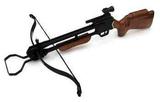BBC News Tuesday, 5 August 2008 00:14 UK

The cleanliness of most NHS hospitals in England is threatened by frequent invasions of rats, fleas, bedbugs, flies and cockroaches, a report claims.
Figures released by the Conservatives show that 70% of NHS Trusts brought in the pest controllers at least 50 times over a two-year period. Vermin were found in wards, clinics and even operating theatres. A patients' group said the situation was revolting. But health chiefs played down fears the infestations could lead to disease.
The figures were obtained by the Conservatives under the Freedom of Information Act, with every hospital asked to reveal how often pest controllers had visited between January 2006 and March this year. Of those who replied, Nottingham University Hospitals NHS Trust topped the table, with more than 1,000 incidents, and five other trusts passed the 800 mark. All the respondents had reported some pest problem in the two-year period. Nottingham University Hospitals NHS Trust said that, as the fourth largest in England, it was likely to encounter more pest control problems, and might be recording incidents differently to other trusts.
Wasps in theatre
While most infestations involved non-clinical areas, some trusts reported problems nearer to patients.
One had wasps in a neo-natal unit, and flying ants on the main wards, while another reported rats in their maternity unit, and wasps in operating theatres.
A children's A&E was infested with flies, and main wards were also home to mice, silverfish, biting insects and beetles.
Other common problems included bedbugs, fleas and cockroaches.
Shadow health secretary Andrew Lansley said: "Labour have said over and over that they will improve cleanliness in our hospitals, but these figures clearly show that they are failing."
'Remote risk'
Both the Department of Health and the Health Protection Agency (HPA) were sceptical of suggestions by the Conservatives that the presence of insect infestations could help spread infections among patients.
A spokesman for the HPA said: "In countries with good standards of healthcare the possibility for insects or pests to transmit infections in hospitals would be very remote.
"In the UK, wounds are treated appropriately and dressings applied to ensure good hygiene and prevent infection."
However, a spokesman from the Patients Association was unconvinced: "Such findings are truly revolting.
"How can patients be safe amid bedbugs, fleas and rats? These findings reveal what happens when money is taken away from where patients expect to see it spent.
"If these hospitals were restaurants they would be closed down and out of business."
The responsibility for monitoring hygiene in the NHS falls to the Healthcare Commission, and the expert leading its healthcare infection programme, Christine Braithwaite, said that it had received "negligible" numbers of reports about the threat posed by vermin.
"Clearly, it may be necessary to take action against pests in these large public buildings from time to time.
"However, it is important for hospital trusts to have robust procedures in place to deal with any pest problems."
The Commission also said it would use the information to inform its hospital hygiene inspection programme.
Health Minister Ivan Lewis said that hospitals were responsible for ensuring their buildings were clean and that patient safety was not compromised.
"The Hygiene Code requires NHS bodies to have a pest control policy that anticipates and manages this issue.
"Trusts should take rapid action and follow through with surveillance in place to avoid pest incidents and minimize hazards.
"Use of pest control is a sign of good proactive management."






















No comments:
Post a Comment